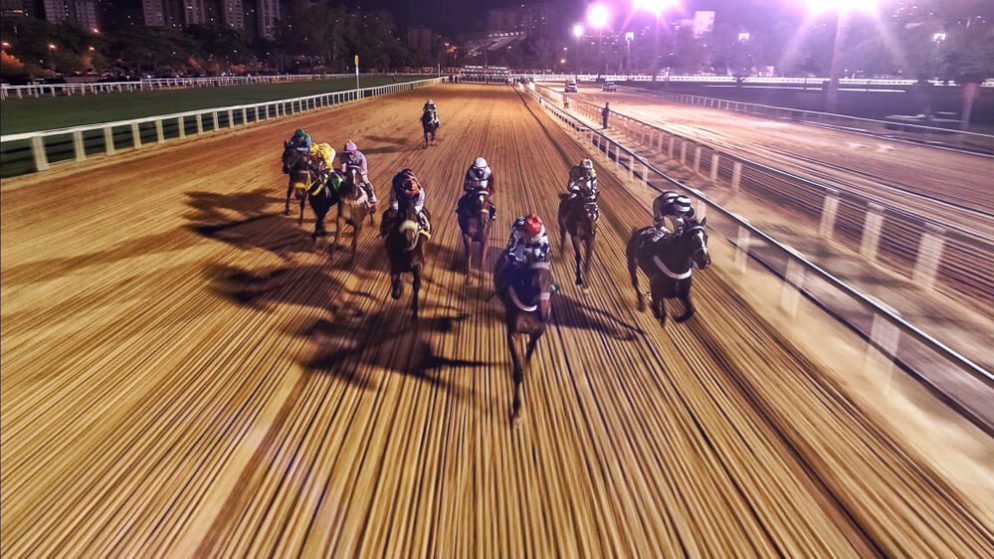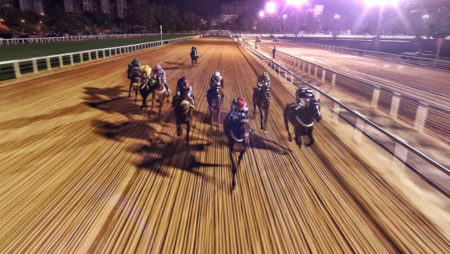

The U.S. Supreme Court recently declined to accept ruling on a lawsuit concerning whether the NJ horsemen are entitled to millions in compensation from the NCAA and the major sports leagues.The dispute centers around sports betting litigation.
The case will now return to the federal court in New Jersey. After considering evidence from both sides, a federal judge will determine how much the sports leagues will have to pay.
What we cover
Ongoing NJ horsemen dispute nears an end
The sports leagues had appealed the 3rd U.S. Circuit Court of Appeals ruling that ruled in favor of the New Jersey Thoroughbred Horsemen’s Association. In 2018, the NJ Horsemen sued the sports leagues after the US Supreme Court overturned the federal prohibition on sports betting.
The suit alleged that the sports leagues owed the NJ horsemen a $3.4 million bond, plus interest. The leagues put that bond up in 2014 to secure losses that could be sustained during the time that a restraining order prevented Monmouth Park Racetrack from offering sports betting.
The association’s lawsuit alleged that in seeking the restraining order the sports leagues acted in bad faith. The bad faith allegation is because the leagues were opposed to legalized sports betting while simultaneously promoting businesses that make millions from fantasy sports games that depend on the performance of individual players.
The lawsuit also claimed that Monmouth Park was wrongfully blocked from offering sports betting because the restraining order was based on a federal ban on sports betting that was later determined to be unconstitutional.
“A party is wrongfully enjoined when it ends up that the party had a right all along to do what it was enjoined from doing,” the 3rd Circuit wrote last year.
When the case returns to a federal court in New Jersey, the judge will also decide whether the NJ horsemen’s damage claims that much as $150 million were lost in sports betting revenue between October 2014 and the Supreme Court’s ruling can proceed.
William Hill Sportsbook at Monmouth Park
Soon after the Supreme Court decision striking down the federal ban on sports betting, the William Hill Sports Bar at Monmouth Park was transformed into the William Hill Sportsbook.
“It was always going to be a sportsbook,” Dennis Drazin, CEO of Darby Development the company operates Monmouth Park said. “We envisioned that as we built it and we put in the money, assuming that we would survive the legal challenge.”
Dennis Drazin is a trial lawyer who grew up in a family immersed in horse racing, and Drazin breeds, owns and races his own thoroughbred horses. Drazin was raised to be among the NJ horsemen. He began operating Monmouth Park in 2012, when the racetrack fell on hard times. Drazin firmly believed that sports betting was the racetrack’s last chance to turn its fortunes around.
Fortunately, Joe Asher, the chief executive of William Hill U.S., was made aware of Mr. Drazin’s campaign to legalize sports betting, and he wanted in on the action. Asher called Drazin from his office in Las Vegas and flew to New Jersey for a meeting. The two spent a day in Drazin’s box at Monmouth Park watching the races and talking sports betting.
On that day, One of Drazin’s horses won the race, and Asher thought it was a good omen. He promptly agreed to invest $1 million into renovating the space that would become the William Hill Sports Bar. In addition, Drazin agreed to contribute $500,000 to the project, and later added an additional $500,000. Both men eventually doubled their investments, and William Hill US agreed to spend an additional $5 million to open another sportsbook at the racetrack somewhere down the line.
So far, the pair’s gamble has paid off, putting Monmouth Park on more solid footing financially. In fact, on 25 April 2019, Dennis Drazin was inducted into the Sports Betting Hall of Fame, not only for his dedication to the legalized sports betting cause, but also for saving the landmark Monmouth Park. The future for all NJ horsemen looks much brighter, due to Drazin’s consistent efforts.








